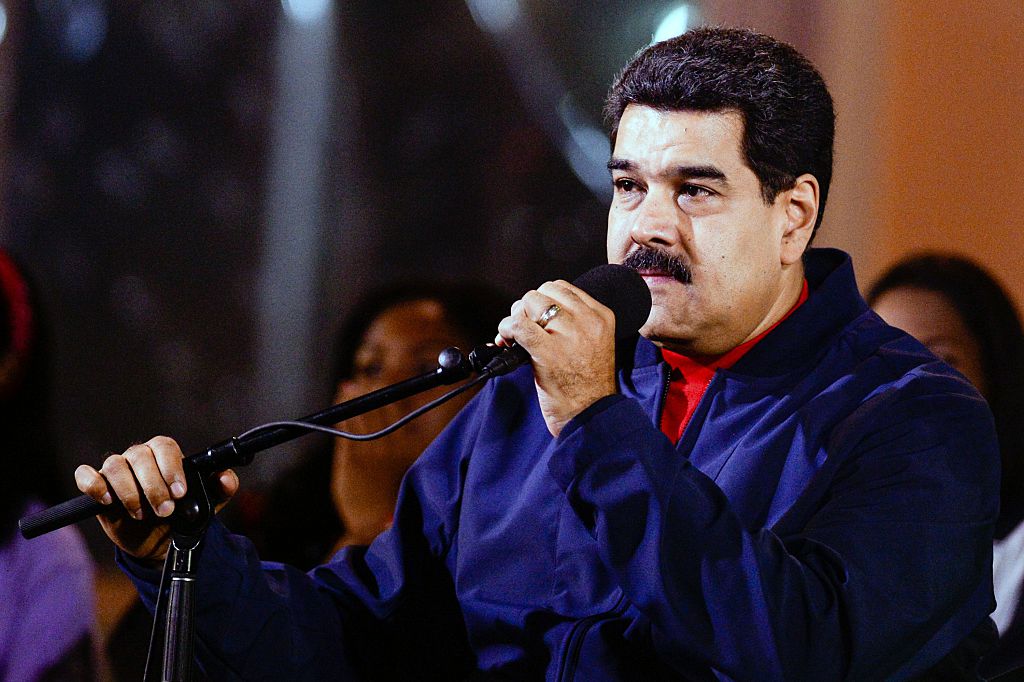CARACAS, Feb 16 (Reuters) – Venezuela’s new economy czar is a former business leader who openly admires the country’s socialist policies but recognizes the need for market reforms, potentially bringing a dose of pragmatism to government policy amid an economic crisis.
President Nicolas Maduro on Monday named industrial engineer Miguel Perez, former head of Fedeindustria, a small and medium-sized businesses association, as economy vice president.
Perez, who has served as a liaison between industry leaders and the leftist Socialist Party, has voiced support for unification of Venezuela’s three official exchange rates. That idea is backed by bondholders who believe the corruption-ridden exchange controls are driving the country toward default.
But opposition critics were quick to dismiss his designation as improvisation. Maduro, who just last month shuffled his Cabinet, has struggled to tackle a severe recession, runaway inflation, and chronic product shortages.
“The government has no direction, it named a new Cabinet and within two months announces major changes,” opposition legislator Elias Matta said on Twitter.
Reuters was unable to obtain comment from Perez.
He replaces Luis Salas, a sociologist renowned for writing that inflation “does not exist in real life” and who lasted just over a month on the job.
Venezuela’s foreign bonds were up across the board on Tuesday following the announcement, with the benchmark Global 2027 bond rising 1.433 points in price to reach 33.933 with a yield of 29.67 percent.
Economists say exchange controls are the principal barrier to Venezuela’s economic progress.
Maduro has repeatedly promised to enact reform measures to overhaul the system but has repeatedly avoided actually doing so, likely because of associated political cost.
Though eliminating the controls would boost availability of products and stimulate local industry, it would also vastly increase the cost of goods for consumers already struggling to make ends meet.
ECONOMIC REFORMS
Perez’s nomination comes as the government is expected to devalue the strongest official exchange rate of 6.3 bolivars to the dollar, which is used for priority goods. The system also provides dollars at around 12 bolivars and around 200 bolivars for less important items, while greenbacks on the black market fetch 1,026 bolivars, according to website DolarToday.
The government is also expected increase the price of gasoline, which is so heavily subsidized that filling a tank costs less than buying a piece of chewing gum.
Maduro denies his government will default on its debt, noting the Socialist Party has always honored commitments despite repeated predictions by Wall Street that it would not.
But even the most optimistic projections show Venezuela will struggle to make bond payments of some $10 billion this year while also importing the goods and services needed to keep the economy running.
Perez, speaking about the need for economic reforms in January, acknowledged the impact of enormous subsidies for consumer goods that have helped sustain the Socialist Party since the era of late President Hugo Chavez.
“We need pricing policies that provide products at fair values to the population, but we also need to protect domestic production so that we can cover costs,” he said in an interview with state television.
“It’s not easy because we are coming from public policies that have turned Venezuela into the country with practically the cheapest products in the world.”
Perez’s family ran a natural gas distribution company in the eastern state of Anzoategui, where his family is seen as influential in the business community, according to local media reports.
Critics dismiss him as an opportunist who has curried favor with the Socialist Party as a way of expanding the reach of his own business interests.
Perez took over Fedeindustria in 2001 and helped turn it into an alternative to the hotly antigovernment Fedecamaras, which in 2002 helped oust Chavez and participated in a brief de facto government.
By 2007, Fedeindustria’s public statements were using phrases such as “rebellion of the means of production” or “Productive Socialism: A Challenge for Private Enterprise.”












